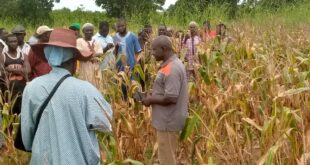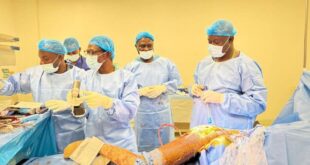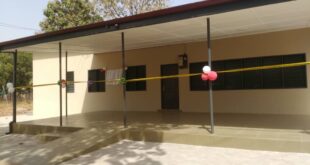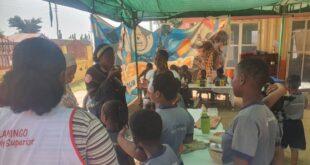Accra, Ghana – SCIENCE, Technology and Innovation (STI) remain the basic tools in addressing economic challenges, and eliminating food insecurity and malnutrition, Professor Victor Kwame Agyeman, Director-General of the Council for Scientific and Industrial Research (CSIR), has said.
He indicated that the promotion of STI would also enhance sustainability in environmental management and therefore, emphasised the need to, harness STI, through adequate funding and research, to enhance national development.
Prof Agyeman was speaking at a function to constitute a Press Corps that would be trained and engage in the promotion of CSIR’s activities as it prepared to mark its 60th Anniversary celebration with a year-long activity.
He said it was also in order, that President Nana Addo Dankwa Akufo-Addo placed science and technology application at the centre of development to ensure that STI was mainstreamed in all socio-economic activities.
The DG said the government’s commitment towards increasing the STI research funding from the current 0.35 per cent of GDP to one per cent, when implemented, would be a big boost to research work, as researchers would be motivated to find local solutions to the nation’s problems.
The Council, as part of its anniversary celebrations, has planned various media and civil society engagements to highlight the importance of science to the society.
It would also organize open days for all of its 13 Institutes located all over the country, to enable the public to get to know its achievements over the 60 years of existence.
Students, particularly females, would be interacted with to popularize science among them, while the lives of eminent scientists would be celebrated with an awards and send-off ceremony.
Prof Agyeman said the science for Development Press Corps, was therefore being formed to help the Council to propagate its STI and research work and findings, as a critical tool for national development.
He noted that at 60 years, some of the 13 research institutes of the Council still had laboratory equipment dating back to the 1970s and 1980s, noting that: “to ensure that CSIR made the necessary impact on national development, there must be continuous efforts to improve the scientific and technological base in these institutions for research and development.”
The DG asked the media to constantly communicate and demonstrate the evidence of science in the ordinary lives of the people and contribute in various ways to enhancing, understanding and appreciation of science and technology in the socio-economic activities.
Professor Rose Maama Enstua Mensah, Deputy Director-General of CSIR in a presentation, noted that the Council had over the years lived up to its vision of leading science for wealth creation by producing and releasing various varieties of crops and animal species to help in poverty alleviation and hunger in the country.
These varieties included, maize, of which over 80 per cent of the varieties being grown in Ghana was developed by CSIR.
Other varieties of rice, plantain, sweet potatoes, cassava, pepper, cowpea, groundnut, tilapia production, grass cutter, broilers, among other food crops that were highly patronized in the country and in many African countries were developed by the Council.
The CSIR have also been working in the area of building and construction materials like the Pozzalina cement production, plastic concrete blocks, biogas technology and traditional medicine research.
“We have been working hard, both with academia and industry to impact and improve nutrition and value addition in food production over these years”, Prof Mensah noted.
Mr Affail Monney, the President of the Ghana Journalists Association (GJA), described CSIR as a leader in research in the country and appealed to the media to highlight the various innovative products and findings of the Council.
He said the Council had more leads that the media could follow up and write about to help inform policy makers, development partners and the public on the research achievements of the institution.
He advised the media practitioners to move away from the excessive political reportage into a more development oriented ones, especially in STI reporting, advocating the needed resources towards STI activities to catapult development.
Source: thefinderonline
 Savannah News Online Reporting Only What Matters Most
Savannah News Online Reporting Only What Matters Most



